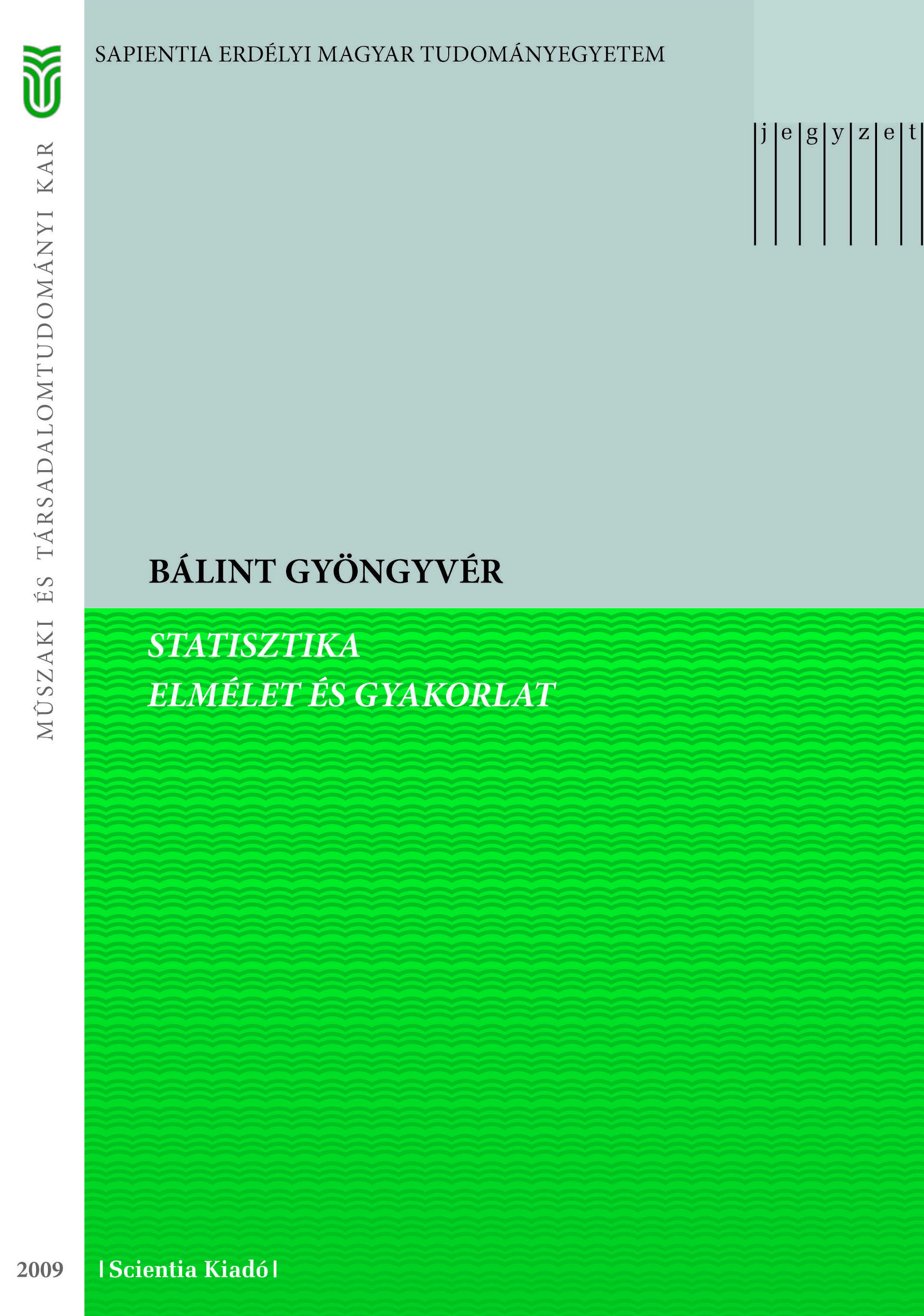Statisztika. Elmélet és gyakorlat
Statistics. Theory and Practice
Author(s): Gyöngyvér Bálint
Subject(s): Sociology
Published by: Scientia Kiadó
Keywords: statistics; sociology; SPSS; bivariate analysis; cluster analysis;
Summary/Abstract: This course of statistics has been prepared mainly for sociology students and offers an introduction into both the theoretical bases of the discipline and into practical deployment of this discipline as well. It has been prepared with the aim of introducing to students simply, step by step, the most indispensable techniques of statistical analysis. this course, illustrated by solved examples and SPSS applications, guides us throughout the basic concepts employed in statistics (statistical population, variable, levels of data measurement), through the basic operations dealing with databases (creating, labelling, importing, merge, selecting cases, transforming variables), then moves to univariate analyses (frequency distribution, averages, measures of dispersion, skewness and kurtosis). Before discussing bivariate analyses, we summarize briefly in the third chapter the basic elements of both of probability theory and of statistical sampling. In the fourth chapter (Bivariate analyses), we consider types of relationships between two kinds of variables, namely between two qualitative, then a categorical and a quantitative, respectively two quantitative variables (contingency analysis, comparison of group means, correlation). The last chapter offers a general summary of multivariate analyses, then by the means of a practical instance leads us throughout the process of principal components analysis and of k-means cluster analyses in the SPSS. We have formed two of the basic messages of the present course already in the first subchapter: 1. the most considerable component of comprehending statistics probably may be practicing to apply these techniques (theoretical knowledge helps practice, however these skills can be achieved through an effective work) and computer programme packs provide a large support in this, respectively 2. mathematical methods cannot be applied mechanically, they require expertise (sociology knowledge): even the most elaborate statistical analysis cannot compensate for the errors committed in the planning of a research and the acquired results also can be utilized efficiently only with appropriate professional knowledge.
Series: Jegyzetek
- Print-ISBN-13: 978-973-1970-17-2
- Page Count: 200
- Publication Year: 2009
- Language: Hungarian
- Table of Content
- Sample-PDF
- Introduction
- eBook-PDF

